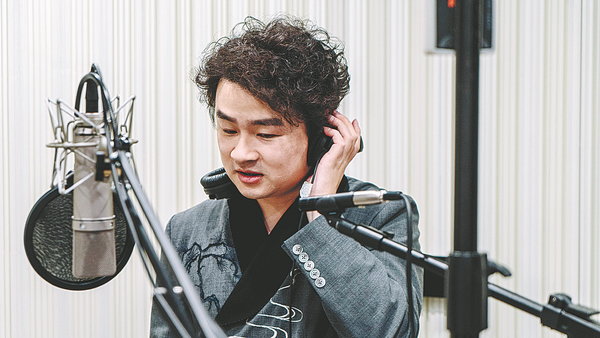Masters of the soundscape
A performing art that dates back thousands of years is alive and well, thriving with the help of modern technology, Fang Aiqing reports.


Fang argued that using such devices did not mean kouji performers had thrown tradition to the wind, but that young people were applying traditional techniques to create things in accordance with current fashions that closely reflect modern lifestyles. It was only when Niu realized that audiences accepted this modern twist on tradition that he began to feel reassured.
Fang, realizing that it was becoming difficult to come up with new sounds in cities that excited him, turned to observing and reproducing what he says are the sounds of animal feelings and emotions, something that he says cannot be done electronically.
He owns a cat and has come to the conclusion that they have a richer range of expression than dogs. When cats are happy-or unhappy-to be held in someone's arms, when they are hungry, cozy or feel reproached, they make different sounds, he says.
He has imagined the potential of kouji in helping humans communicate and interact with animals. For example, once on hearing a crow in the distance, he tried to simulate another one wounded and calling for help, and the crow came looking for its peer.
He has also helped design voices for characters of mobile phone games including Honor of Kings, or Arena of Valor as its international version is called. Some of them include features of both animals and humans, while for others he has to create the voice and expressions based on details provided to him of their characteristics.
To be fully appreciated kouji needs to transcend vivid depictions and be relevant in daily life or valued for its artistic input, he says.
One recent instance of the latter was A Bite, A Whistle, A Chapter, on which he worked with iFanr, a digital portal of technology and consumer content in Guangzhou. The three-minute recording presents countryside on a fine, warm day whose peace is broken by a thunderstorm, but to which serenity eventually returns.
Fang produced 36 sound effects with kouji skills, 13 simulating birds, some of them in his hometown. The dog sounds differ in breed, size, distance and location, and there are also dogs fighting, the whine of mosquitoes and the sound of the xun, a traditional Chinese instrument.
The work is available on Apple Music, with Spatial Audio technology support provided by Dolby Atmos, which aims to make the sound omnidirectional. This means, for example, that the listener will perceive birds to be tweeting or flapping wings above them, nearby or far away.
In essence kouji is a skill that draws from nature and creates the sense of space with sound to make audiences feel immersed. With the help of the innovative audio technology, the work overcomes the limitations of kouji performers, whose shows are usually one-dimensional, and provides the immersive experience audiences have been looking for.
He Zongcheng, iFanr's chief content officer, says the work is part of a project to digitalize the quintessence of Chinese culture of high artistic value while suitable to be presented in a digital way.
However, Fang and He recognize that while Spatial Audio technology does wonders for voice reproduction even as it finely presents the best examples of both ancient acoustic artistry and digitalization-the latter being a common method for preserving intangible cultural heritage-there is more to it than just keeping a record. Creating new sounds and experiences and improving the artistry is also important.
As a young cultural inheritor, Fang says he will carry on exploring new possibilities of kouji in an era of digital and social media.
"To turn the beauty of nature into art, the artists' thoughts and design are indispensable," he says, adding that these days he is more focused on expressing himself through his work. "I'm lucky enough to have a career that is tied up with my passion, and I want to touch more hearts with sound."
Contact the writer at [email protected]




































